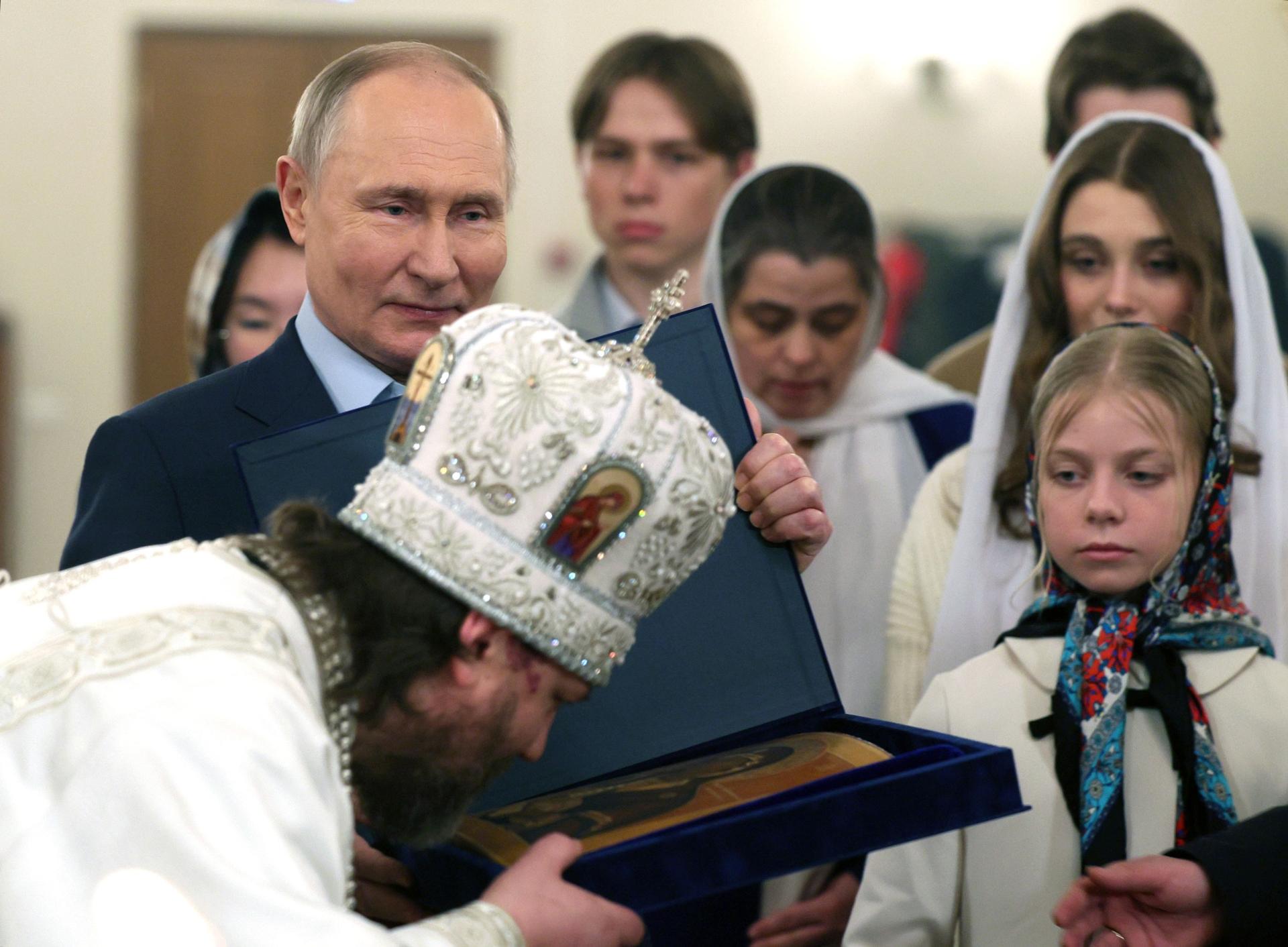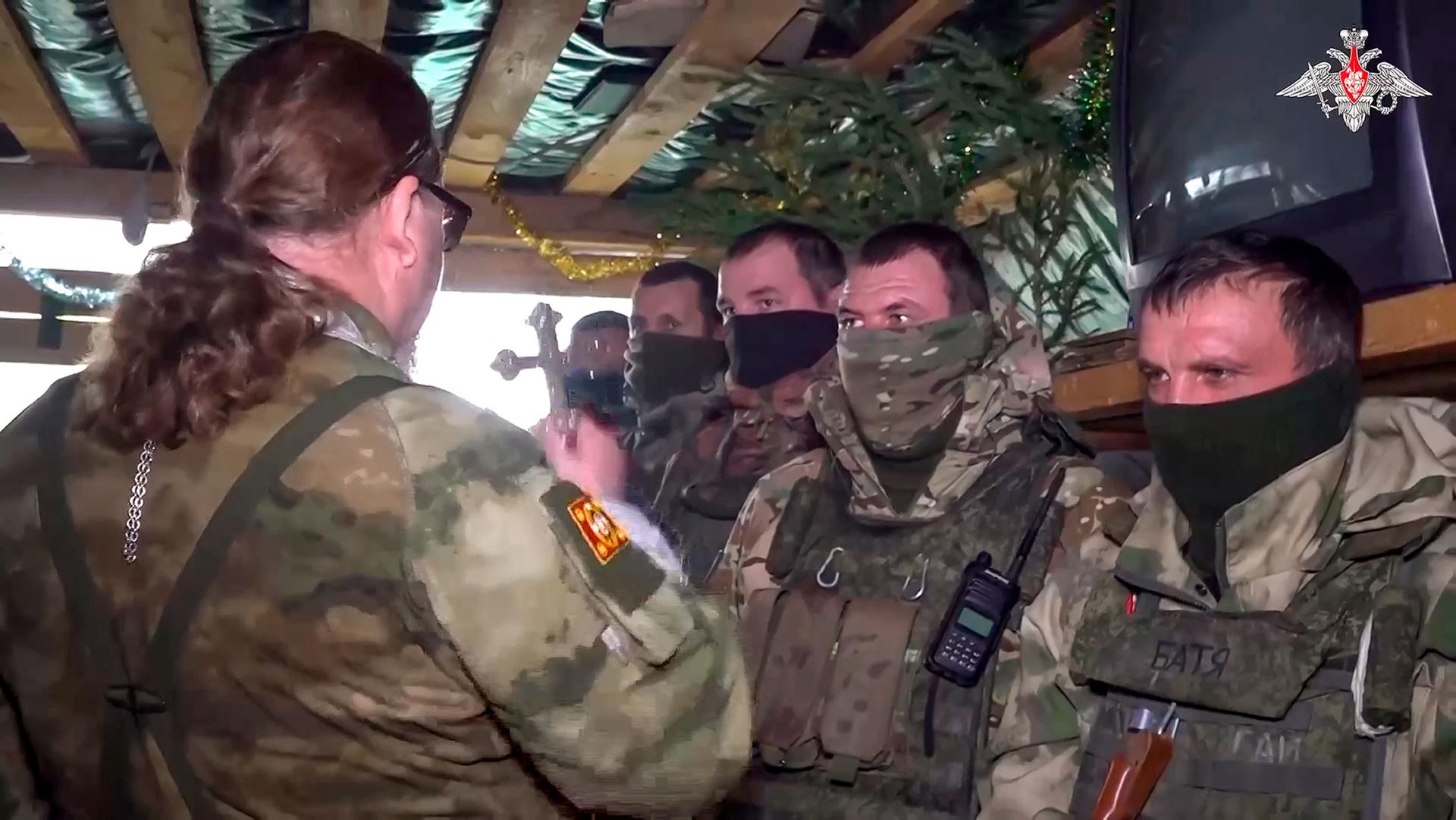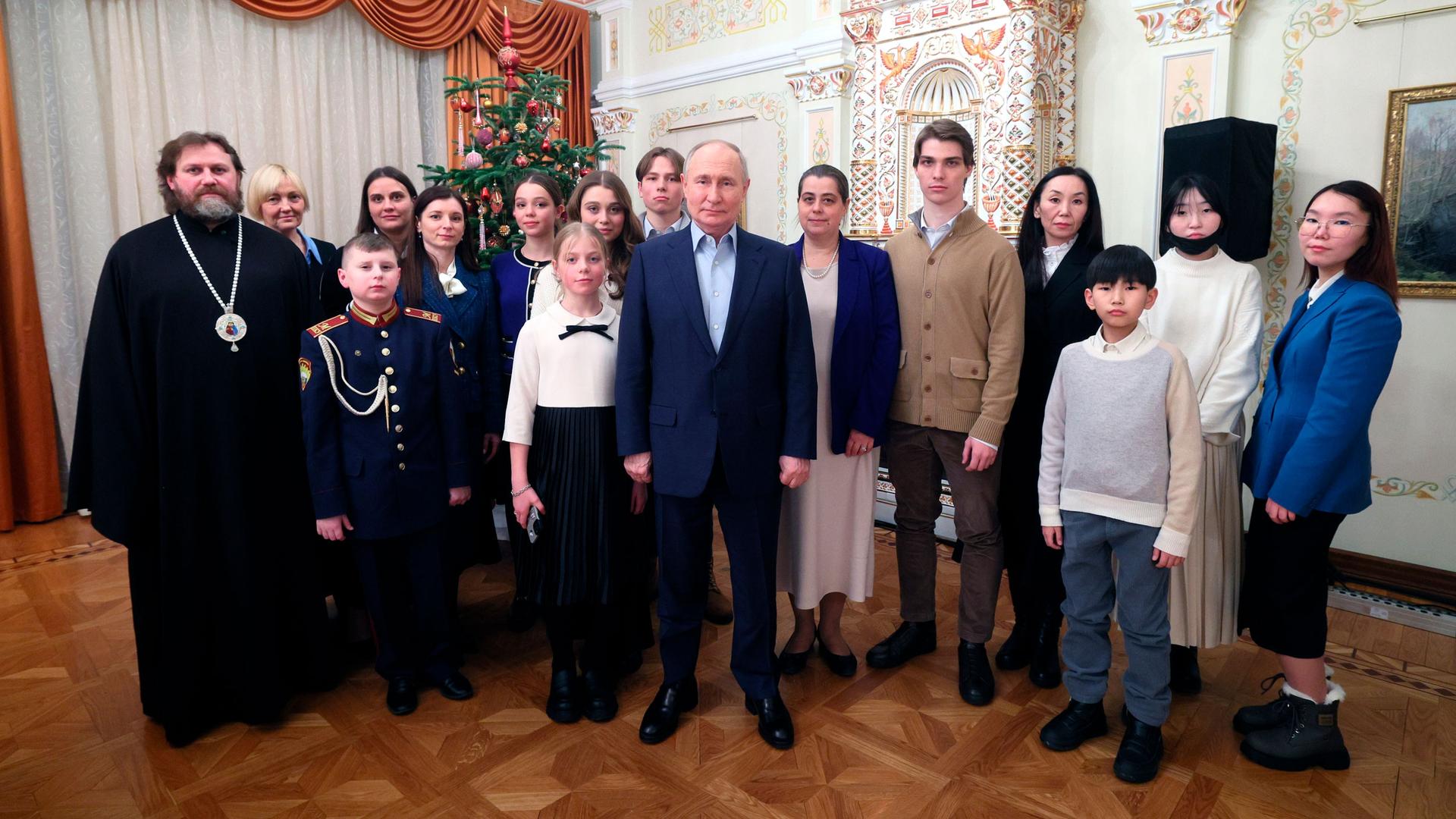Every New Year’s Eve, Russian President Vladimir Putin delivers a speech that airs on Russian state TV.
This year, Putin’s address was short and to the surprise of many, he did not mention Russia’s war againstUkraine. But he did make an announcement. He declared that 2024 would be “the year of the family.”
He described the virtues of traditional families, where kids are raised with patriotic ideals. The speech is part of a yearslong campaign to promote so-called “traditional values.”
“The items that are usually included in traditional values are the traditional family. So the heterosexual family model,” said Kristina Stoeckl, a sociology professor at LUISS University in Rome.
“It is patriotism, so it’s shorthand a conservative ethos that puts the collective over the individual,” she said.
Stoeckl said that starting in 2012, the Russian state introduced a series of laws to protect traditional values, including a law against “offending the feelings of religious believers,” and a law banning what the state calls “LGBT propaganda.”
More recently, Stoeckl said this campaign has been represented as a specific rejection of Western values and a reason to target Ukraine.
“President Putin has said several times, ‘We are the people for the normal family. We don’t want parent one or parent two.’ So, the West has been depicted and denigrated basically in sexual terms. The whole conflict has been gendered from the Russian perspective,” she said.
Stoeckl said that before the war, the main institution promoting this message was the Russian Orthodox Church.
But now Russia’s political leadership has firmly embraced this agenda.

In late November, Russia’s Supreme Court designated what it called “the international LGBT public movement,” as an extremist organization.
Although such an organization doesn’t exist, the message from the state was clear: Any promotion of LGBTQ activity — in any form — could land you in jail.
“The policy of the state is despicable,” said Illya, who left in October of 2022 with his boyfriend, who is also named Ilya.
The World is withholding the couple’s last names, because they fear they could be targeted if they decide to go back to Russia.
“Just a week after the announcement of the mobilization [of troops], I started feeling I’m not safe. I started looking around when I went out from my home. In some regions there was a physical harm to people like me,” Ilya said.

The other Ilya also felt uneasy, especially at work. He used to teach at a university.
“It was getting increasingly hard to educate students without exposing myself, firstly as gay, and secondly as a person who is against this war. I realized that there might be people who could report me,” he said.
The couple said that in the past, they would be cautious, but they didn’t live in fear. Despite anti-LGBTQ legislation, they lived safely in what they call their own social bubble.
“We are trained, we as population Russians in general, are trained to separate what people on TV are saying and what is going on in real life,” Ilya said.
But since the full-scale invasion, they started taking anti-LGBTQ pronouncements more seriously.
Stoeckl said that targeting the LGBTQ community is just one part of the campaign to promote “traditional values.”
“Pro-life issues go hand-in-hand with the anti-LGBT agenda,” she said.
Stoeckl added that conservative activists, often associated with the Orthodox Church, promote a set of policies that get bundled together.
“So, most of these people are against abortion, they also run NGOs that try to limit abortions, or dissuade women from having abortions and at the same time they advocate for the traditional family and accuse LGBT groups of targeting this,” she explained.
As Russia clamps down on basic freedoms, many activists have left the country.
Zalina Marshenkulova, a prominent Russian feminist, left the country just weeks after its full-scale invasion of Ukraine.
“For the last five years, I lived with the threat of going to jail,” she told The World.
She openly opposed the state’s “traditional values” agenda. And more recently she spoke out against the war.
“Overall, in Russia, there are problems with upholding human rights,” Marshenkulova said. And that makes women’s rights more vulnerable, as well.
In recent months, some regions in Russia have tried to restrict access to abortion, justifying these moves as a solution to declining birth rates. But Marshenkulova said the demographic problem has nothing to do with abortion rates; it’s because people lack confidence in the country’s future.
“Why would you have kids in this country at a time like this? To send them to war once they turn 18?”
For now, Marshenkulova and her family remain in exile in Tbilisi, Georgia.
“If I ever go back to Russia,” she said, “I need to be sure that I won’t need to apologize — for anything.
Our coverage reaches millions each week, but only a small fraction of listeners contribute to sustain our program. We still need 224 more people to donate $100 or $10/monthly to unlock our $67,000 match. Will you help us get there today?
